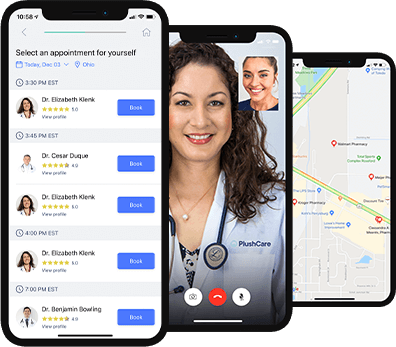Ureaplasma symptoms
Bacteria is not always bad. In fact, all of us have "good" bacteria present in our bodies to help with digestion and to prevent certain infections. Women tend to have a lot of "good" bacteria in their cervix region while men have it in their urethra. One such bacteria is ureplasma. It is one of the tiniest free-living organisms in the world, and they are even hard to spot through a microscope. This species tend to overgrow at times and infect the healthy tissues in the body, thereby leading to infection.
How Does it Get Transmitted?
Large amount of ureaplasma tend to get transmitted through sexual contact. This is why you often find this condition among sexually-active adults, as it enters the body through the vagina or urethra. It can also get passed on from mother to child in a pregnancy. The good news is, the infection goes away in a few months and is not life threatening by itself.
Ureaplasma Symptoms
People with high levels of Ureaplasma don't experience any symptom. But these large colonies of bacteria affect the healthy tissues in urethra and this leads to an inflammation called urethritis. It is common in both women and men. The symptoms associated with Ureaplasma are:
Intense pain during urination
A burning sensation in the urethra/vaginal area
Continuous discharge
Abdominal pain
Swelling near the opening of urethra
Pain or odor from the discharge
The presence of large amounts of Ureaplasma increases the possibility for other conditions such as:
kidney stones
urethritis
premature labor
respiratory diseases especially in newborn children
bacterial vaginosis (characterized by a watery discharge from the vagina and an unpleasant odor in it)

1
Book on our free mobile app or website.
Our doctors operate in all 50 states and same day appointments are available every 15 minutes.
2
See a doctor, get treatment and a prescription at your local pharmacy.
3
Use your health insurance just like you normally would to see your doctor.
In addition, ureaplasma is known to increase complications in pregnancy. Though it doesn't directly cause any of the below conditions, it could accelerate the onset of these conditions.
Rupture of the fetal membrane
Low birth weight
Funisitis
Amniotic infection
Preterm labor
Postpartum endometritis
Invasion in placenta
Talk to a Doctor
If you're experiencing any of the above symptoms, talk to a doctor right away. This is particularly important if you're pregnant, have a weak immune system, are HIV-positive, or if you've had an organ transplant in the recent past. In most cases, the doctor will not order for a lab test of ureaplasma right away. Only when all other possible problems for these symptoms are ruled out, will the doctor order for these tests. You can get started by talking to a PlushCare doctor right away.
Our doctors are the best in their respective fields and help you through this condition, right from the comfort of your home. They are available through phone, video chat and mobile app. Based on your condition, they can order a test if required, and you can upload the results to your doctor. Based on these results, the doctor will diagnose your condition and prescribe the necessary treatment. It is likely that antibiotics will be prescribed if you are suffering from ureaplasma. Your antibiotic prescription can be sent electronically to the pharmacy of your choice, so it's easy and convenient for you. Book an appointment with a PlushCare doctor and start treatment today.



